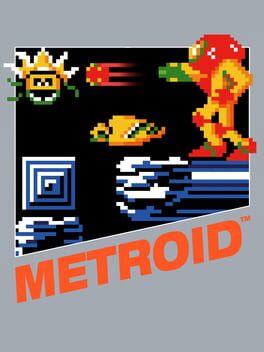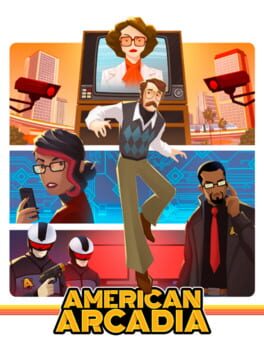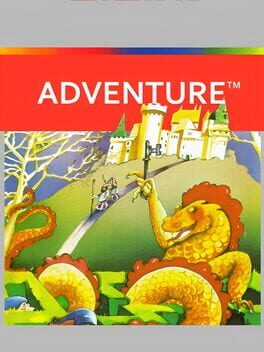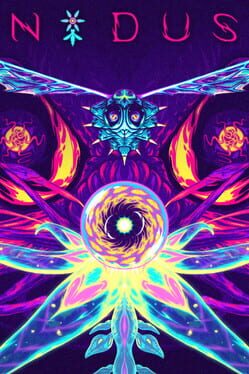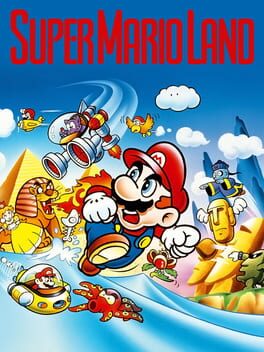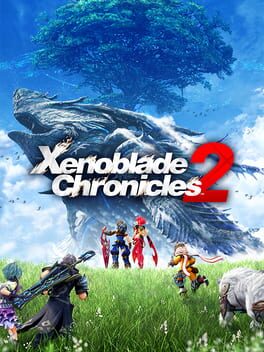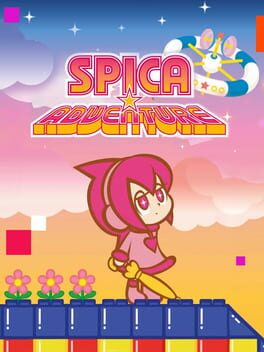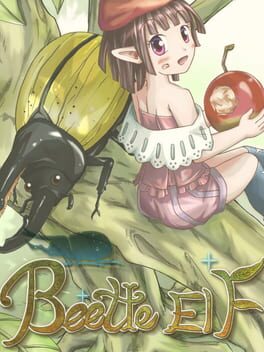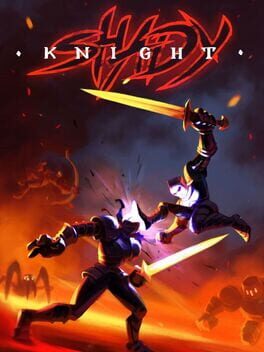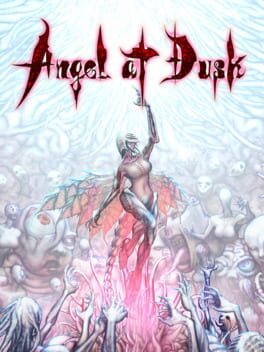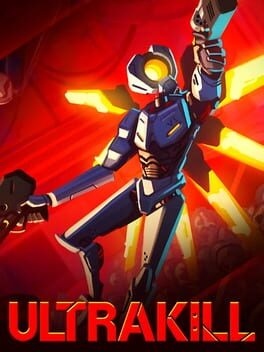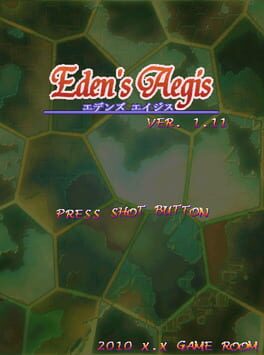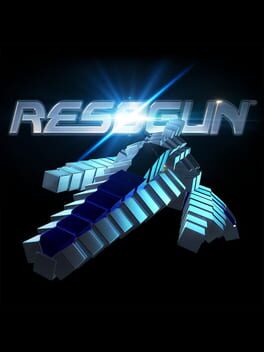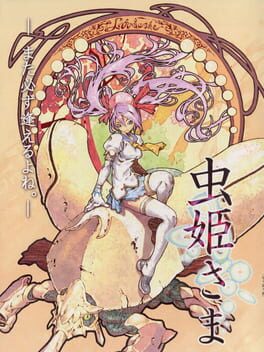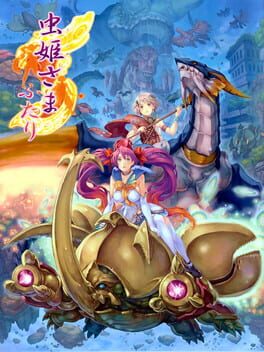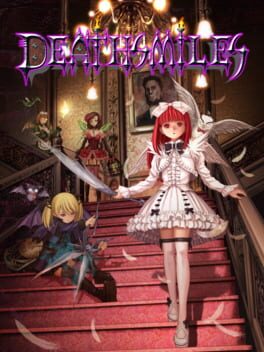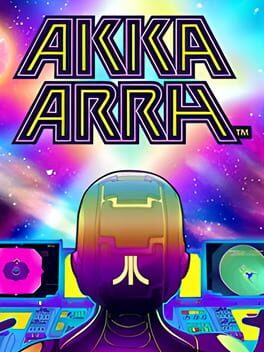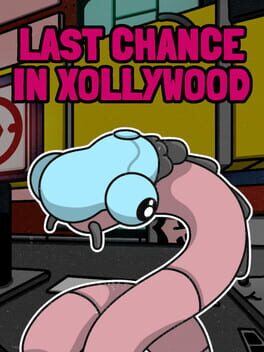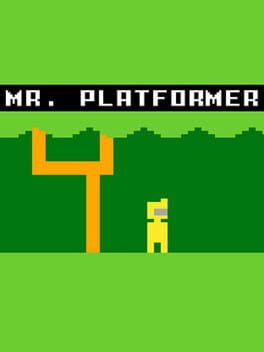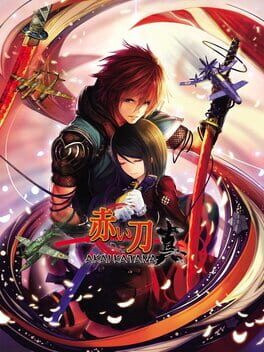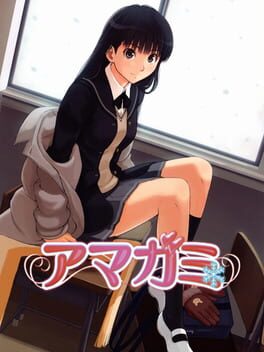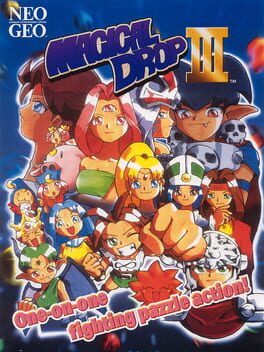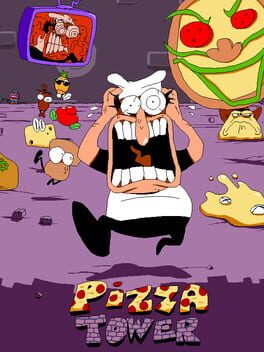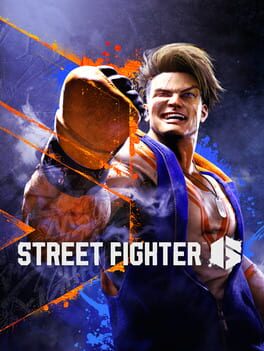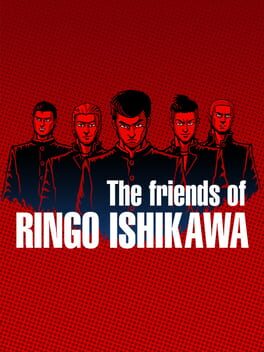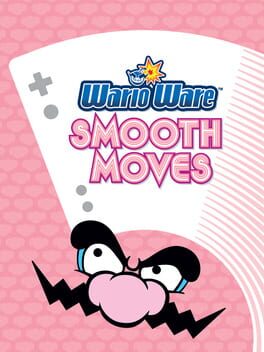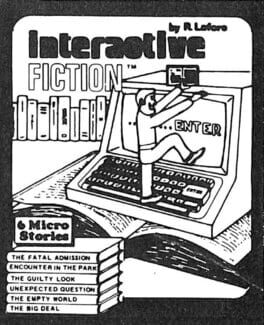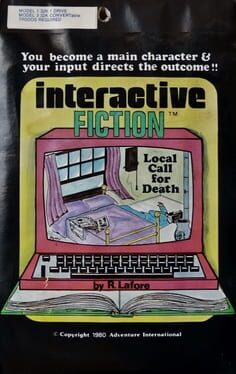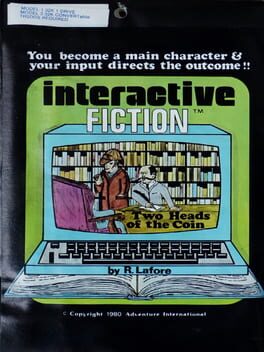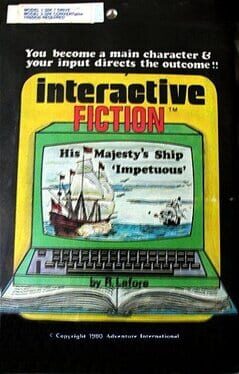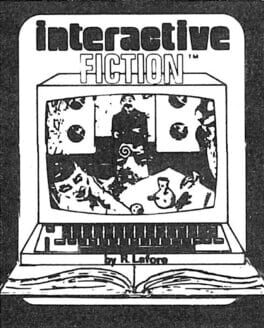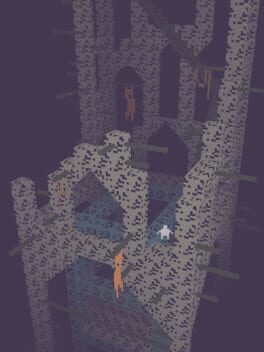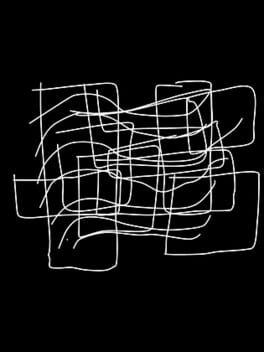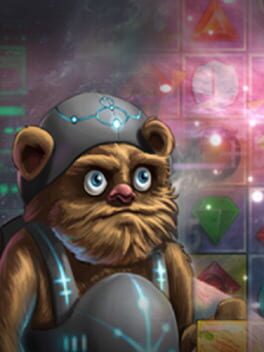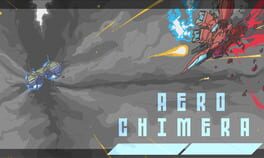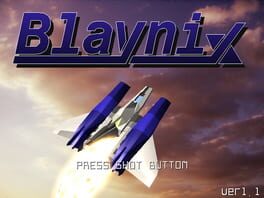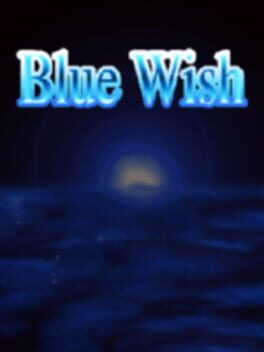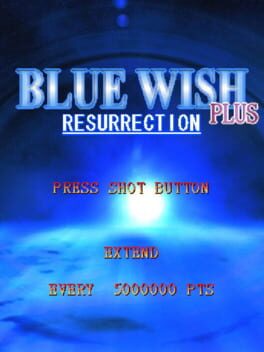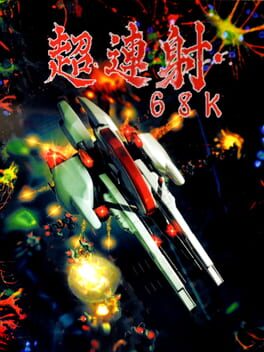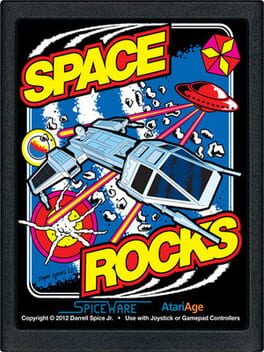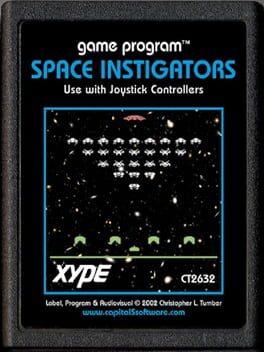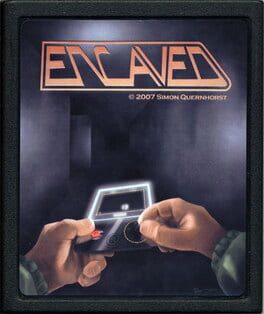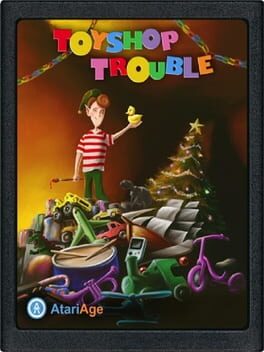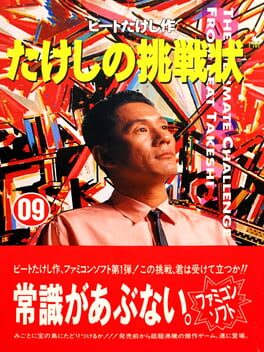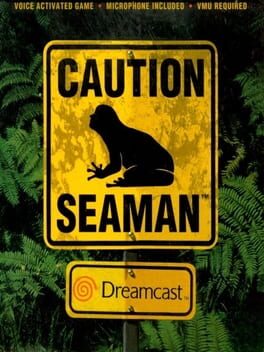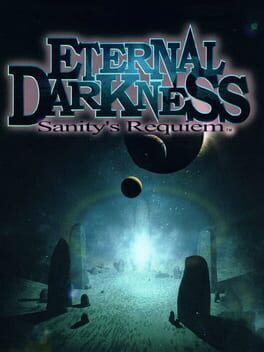217 reviews liked by Ira
Metroid
1986
The online discourse for this game is baffling. If I'd listened to the current consensus, then I would have avoided all but a handful of NES games, because they're apparently unfun, dated junk.
I decided to give the original Metroid a shot anyway, and I'm floored. This game is spectacular. Some of the music tracks are among the best I've ever heard. The atmosphere is as thick as butter. The world is enormous and labyrinthian. I felt a sense of vertigo uncovering side passage after side passage in areas I'd previously explored, realizing the map was at least double the size than I'd previously thought.
People are playing this game wrong. Don't use a guide, just read the manual. Be frustrated, and learn the game. This isn't a walk in the park. This is an expedition to a hostile alien fortress.
American Arcadia
2023
Al final de un juego que tiene plataformas de mentira, sigilo de mentira, puzzles de mentira, una trama distópica haciendo críticas de mentira sobre nada, se revela lo obvio. El juego no tiene ni una pizca de esperanza de que las cosas puedan ir a mejor o de que los seres humanos se comporten como tal, y en los créditos se asegura de mostrar que todo intento de su (pobre y falsa) idea de revolución es devorado por el mercado.
Esto se debe a que es un juego devorado por el mercado, por la tendencia, por la mentira, por hacer porque sí, por ser rentable, porque no cree que los humanos tengan nada que hacer por gusto, porque cree que cualquiera se vende o como poco se acaba engatusando por el mal. En esta secuencia de créditos con tono burlón y desesperanzador, el punto de miseria más alto es uno inesperado y accidental. Entre los mensajes de agradecimiento de los desarrolladores, por lo general nada fuera de lo normal, uno de ellos dedica unas palabras muy sentidas a su madre fallecida recientemente. Después de tantas horas de falsedad choca ver un acto tan escondido y tan humano de la nada, que tarda poco en desaparecer de pantalla mientras una versión ensalzada de ironía de la canción recurrente principal sigue sonando, mientras las imágenes de fondo y la escena post créditos se suceden perpetuando que el ser humano no importa y que no tiene capacidad de empatía ni de amor.
Esto se debe a que es un juego devorado por el mercado, por la tendencia, por la mentira, por hacer porque sí, por ser rentable, porque no cree que los humanos tengan nada que hacer por gusto, porque cree que cualquiera se vende o como poco se acaba engatusando por el mal. En esta secuencia de créditos con tono burlón y desesperanzador, el punto de miseria más alto es uno inesperado y accidental. Entre los mensajes de agradecimiento de los desarrolladores, por lo general nada fuera de lo normal, uno de ellos dedica unas palabras muy sentidas a su madre fallecida recientemente. Después de tantas horas de falsedad choca ver un acto tan escondido y tan humano de la nada, que tarda poco en desaparecer de pantalla mientras una versión ensalzada de ironía de la canción recurrente principal sigue sonando, mientras las imágenes de fondo y la escena post créditos se suceden perpetuando que el ser humano no importa y que no tiene capacidad de empatía ni de amor.
Mother
1989
This review contains spoilers
When my backlog wheel landed on this for me to play, I was beyond hyped. This game, after all, jumpstarted one of Nintendo's most unusual and influential franchises, and would go on to inspire masterpieces of its own. Hell, freaking Yume Nikki has a whole world referencing bits of Mother 1, and that's easily one of the most original and experimental titles ever conceived. So it paying homage to this game must mean a lot.
Well, I'm just going to say straight off the bat: this game induces suffering. Every cool mechanic you know and love about the MOTHER series, this one does not have. That means no rolling HP, no psychedelic background, and random encounters. On top of that, I found the game had a ton of balancing issues. On a whim, the right enemies can bind you into a lock, with hardly a chance of breaking free from it. The cherry on top has to be Mt. Itoi, which is from what I've heard never playtested 💀 Nintendo really smoked crack on their part. I thank myself that I had a guide and an emulator to speed up the battles when I needed to.
All the little gameplay quirks really got to me at first with the inventory management and shops but once I started to view everything from the perspective of real life, it made sense. Of course you're not going to be able to hold a whole lot, and you're going to have to swap around goods so that it can be usable. Of course you're being charged an egregious sum just to see your friends revived. Of course, instead of simply interacting with the ATM, you have to open your inventory, scroll to the Cash Card, and hit use. It makes so much sense. That also goes for having the train animation play whenever you use it, and your dad blabbing on and on before you get to the point.
I think the smartest I ever felt when viewing this game through that lens would be when Lloyd joins your party. The game tells you that he's a weakling, and he has the low stats to back that up. The most useful he gets is using gadgets that break often. I asked myself, "why would the game deliberately give you a weak party member?" Then it hit me. Of course, if you were to go on an adventure with your friends chances are you're going to have drag the dorky kid along with you. They're not all combat ready. I love how the game then ties up Lloyd's character with the typical "I'm going to prove myself" arc.
But, those quirks didn't make me fall in love with the game though. After all, this game had indeed made me ragequit, to the point where I would take weeklong breaks from the game when it's not even that long. As I mentioned to my friends, it's art in the same way that a bully beats you up and your mom gives you grilled cheese and apple slices to help make you feel better.
It was the end that the game really got to me. Out of nowhere, I started crying after Ninten sang the Eight Melodies to Queen Maria. She started talking about Geigue and how he was when she raised him, and how his tail would always wag like a dog except for when she sang that lullaby. I was seriously fighting back tears (which I was told NOT to cry about yet, thanks Mother fandom) because the way she talked about him sounded exactly like a loving grandmother on her deathbed, recalling all the fun little memories she had with her grandchildren before passing away peacefully. And then Magicant disappearing, a place that said to always have a loving home for Ninten, felt like the emptiness I felt when my grandmother passed away. I haven't actually properly cried for her passing away, and I haven't done so for over 10 years now. But now I definitely feel like I've let out some of the deep-seeded pain. Even while writing this review, tears are dripping down my face.
So yeah, the ending manages to pick everything back up all at once. It's really not fair of me to attach a score to this game because of how deep the emotions run with it. I feel the same about this game as I do with my own life. It sucks a lot. I've been through a lot of mental pain. But there are just those tender moments, like dancing on the stage, or walking around the elementary school, or sharing a close bond with Ana, that really just make it charming. And then sometimes, it really turns out for the better.
In short, if you're able to love a piece of art, thorns and all, then I definitely recommend it provided you promise me you won't get hurt too much by it. Because this game hurts a lot but man I'm glad to have gone through it.
Well, I'm just going to say straight off the bat: this game induces suffering. Every cool mechanic you know and love about the MOTHER series, this one does not have. That means no rolling HP, no psychedelic background, and random encounters. On top of that, I found the game had a ton of balancing issues. On a whim, the right enemies can bind you into a lock, with hardly a chance of breaking free from it. The cherry on top has to be Mt. Itoi, which is from what I've heard never playtested 💀 Nintendo really smoked crack on their part. I thank myself that I had a guide and an emulator to speed up the battles when I needed to.
All the little gameplay quirks really got to me at first with the inventory management and shops but once I started to view everything from the perspective of real life, it made sense. Of course you're not going to be able to hold a whole lot, and you're going to have to swap around goods so that it can be usable. Of course you're being charged an egregious sum just to see your friends revived. Of course, instead of simply interacting with the ATM, you have to open your inventory, scroll to the Cash Card, and hit use. It makes so much sense. That also goes for having the train animation play whenever you use it, and your dad blabbing on and on before you get to the point.
I think the smartest I ever felt when viewing this game through that lens would be when Lloyd joins your party. The game tells you that he's a weakling, and he has the low stats to back that up. The most useful he gets is using gadgets that break often. I asked myself, "why would the game deliberately give you a weak party member?" Then it hit me. Of course, if you were to go on an adventure with your friends chances are you're going to have drag the dorky kid along with you. They're not all combat ready. I love how the game then ties up Lloyd's character with the typical "I'm going to prove myself" arc.
But, those quirks didn't make me fall in love with the game though. After all, this game had indeed made me ragequit, to the point where I would take weeklong breaks from the game when it's not even that long. As I mentioned to my friends, it's art in the same way that a bully beats you up and your mom gives you grilled cheese and apple slices to help make you feel better.
It was the end that the game really got to me. Out of nowhere, I started crying after Ninten sang the Eight Melodies to Queen Maria. She started talking about Geigue and how he was when she raised him, and how his tail would always wag like a dog except for when she sang that lullaby. I was seriously fighting back tears (which I was told NOT to cry about yet, thanks Mother fandom) because the way she talked about him sounded exactly like a loving grandmother on her deathbed, recalling all the fun little memories she had with her grandchildren before passing away peacefully. And then Magicant disappearing, a place that said to always have a loving home for Ninten, felt like the emptiness I felt when my grandmother passed away. I haven't actually properly cried for her passing away, and I haven't done so for over 10 years now. But now I definitely feel like I've let out some of the deep-seeded pain. Even while writing this review, tears are dripping down my face.
So yeah, the ending manages to pick everything back up all at once. It's really not fair of me to attach a score to this game because of how deep the emotions run with it. I feel the same about this game as I do with my own life. It sucks a lot. I've been through a lot of mental pain. But there are just those tender moments, like dancing on the stage, or walking around the elementary school, or sharing a close bond with Ana, that really just make it charming. And then sometimes, it really turns out for the better.
In short, if you're able to love a piece of art, thorns and all, then I definitely recommend it provided you promise me you won't get hurt too much by it. Because this game hurts a lot but man I'm glad to have gone through it.
Adventure
1979
Adventure
1979
The first great triumph of purely videogame adventure is also one of the first great triumphs of abstraction. The power of Adventure goes beyond the evocative, which is no menial thing, but embraces a wholly abstract language to build a world far more robust and plausible than any other that actively attempts to imitate reality.
It is curious for Colossal Cave Adventure to be one of the main sources of inspiration. It isn’t unexpected that it was taken as a source, as there must not have been many successful examples at the time in the search of adventure, but in how the paths diverged, almost reactionary. Adventure gets rid of words altogether to commit to a total physical world. Consequently, contrary to what abandoning immediate realism may imply, the world of Adventure becomes much more intuitive and believable. There is no longer the conflict of having to puzzle out what kind of commands a word processor is able to understand or not in order to move forward, there is instead the discovery of a system that, while allowing itself to be much simpler, is also much more transparent.
You can grab objects and drop them, birds can also carry (and steal) objects, magnets attract objects contained in the same screen, bridges allow you to cross walls (or whatever they are)... All these rules are not broken at any time and lead to a world that, as Tim Schafer says in the Atari 50 Collection, seems alive, that is able to exist even if the player is not present. Thus, birds can carry away a dragon, a key, a magnet attracting a key, or the player can peek sections of the world while traveling defeated in the belly of a dragon. This contributes in two areas: one of wit from being able to use the available elements in our favor to avoid or tackle obstacles, and another of unpredictability, chaos and life, because given the rules the dislocations of all the elements throughout the map during the game are more than certain. There is always a factor that requires improvisation while continuing the discovery.
It’s difficult to explain how well Adventure applies multiple abstractions to its advantage since many of them have been irremediably absorbed by everything that would come after. As Terry Cavanagh understood in Mr. Platformer, paying homage to similar early titles such as Atari 2600’s Pitfall or Montezuma’s Revenge, these first videogame steps that began to understand abstraction also began to use it as a liberating language. Where entering through a door into a fortress was teleporting into a labyrinth, moving past the edge of the screen was discovering a new piece of the world and doing so repeatedly on the same side discovered a spatially impossible loop.
It's a process of genuine discovery because it doesn’t attempt to clumsily replicate reality, but rather to discover new ways of navigating, interacting and understanding a world. And in the face of all these new, impossible and abstract forms remains a strong, direct and unmistakable sensation: Adventure.
It is curious for Colossal Cave Adventure to be one of the main sources of inspiration. It isn’t unexpected that it was taken as a source, as there must not have been many successful examples at the time in the search of adventure, but in how the paths diverged, almost reactionary. Adventure gets rid of words altogether to commit to a total physical world. Consequently, contrary to what abandoning immediate realism may imply, the world of Adventure becomes much more intuitive and believable. There is no longer the conflict of having to puzzle out what kind of commands a word processor is able to understand or not in order to move forward, there is instead the discovery of a system that, while allowing itself to be much simpler, is also much more transparent.
You can grab objects and drop them, birds can also carry (and steal) objects, magnets attract objects contained in the same screen, bridges allow you to cross walls (or whatever they are)... All these rules are not broken at any time and lead to a world that, as Tim Schafer says in the Atari 50 Collection, seems alive, that is able to exist even if the player is not present. Thus, birds can carry away a dragon, a key, a magnet attracting a key, or the player can peek sections of the world while traveling defeated in the belly of a dragon. This contributes in two areas: one of wit from being able to use the available elements in our favor to avoid or tackle obstacles, and another of unpredictability, chaos and life, because given the rules the dislocations of all the elements throughout the map during the game are more than certain. There is always a factor that requires improvisation while continuing the discovery.
It’s difficult to explain how well Adventure applies multiple abstractions to its advantage since many of them have been irremediably absorbed by everything that would come after. As Terry Cavanagh understood in Mr. Platformer, paying homage to similar early titles such as Atari 2600’s Pitfall or Montezuma’s Revenge, these first videogame steps that began to understand abstraction also began to use it as a liberating language. Where entering through a door into a fortress was teleporting into a labyrinth, moving past the edge of the screen was discovering a new piece of the world and doing so repeatedly on the same side discovered a spatially impossible loop.
It's a process of genuine discovery because it doesn’t attempt to clumsily replicate reality, but rather to discover new ways of navigating, interacting and understanding a world. And in the face of all these new, impossible and abstract forms remains a strong, direct and unmistakable sensation: Adventure.
Nidus
2024
Uncomfortable at first for its unique and daring control without abandoning the arcade spirit. Having to control two avatars at once makes the task already complex, but the various restrictions and synergies are the blossoming factor. It is not simply that the flower has to be kept in the defense and the wasp must look for the offense, both beings deplete their health and have to join together to mutually recover, along other essential offensive actions that require the ability to coordinate both creatures' positions. On top of that, the avatars cannot even go completely free, there is a limit on the separation length that makes it a constant to maneuver both bodies. All this is also supported by enemies that, taking advantage of the circular arena, tend to chase the flower, making each screen a kind of constant multiple double tag game.
The gratification of getting to control the two avatars to the point of being able to face an arcade that does not hold back its frenzy ends up reminiscing something. It is a similar feeling to picking up a guitar for the first time, having to look down as your clumsy fingers slowly place themselves on each fret, and end up making the instrument another part of your body like the vocal cords themselves.
The gratification of getting to control the two avatars to the point of being able to face an arcade that does not hold back its frenzy ends up reminiscing something. It is a similar feeling to picking up a guitar for the first time, having to look down as your clumsy fingers slowly place themselves on each fret, and end up making the instrument another part of your body like the vocal cords themselves.
Super Mario Land
1989
While Nintendo was never afraid of experimenting with Mario's identity, providing numerous detours in aesthetic and thematic imagery just by jumping from SMB1 to SMB3, Super Mario Land definitely earns its distinction of being "the weird one".
It interprets the plumber's magical landscape as one filled with ancient history and sci-fi cultural artifacts from our own planet that somehow feel more alien than what the Mushroom World has accustomed us to. There is definitely something very otherwordly and dreamlike about starting a level with the implication that Mario arrived on a UFO and that the enemies you will be facing are Easter Island face fellas, and the changes made to accomodate the limitations of the hardware, such as the exploding turtles and the bouncing ball power up, further elevate Super Mario Land's odd quirky vibe.
What I love the most about it though is its brevity. Low of difficulty and brisk paced, Super Mario Land is beatable under 30 minutes with little chance for game overs and with enough variety sprinkled inbetween that makes picking it up for a high score attempt highly leasurable and absolve it of the settling monotony that plagues the repeating assets and levels from SMB1. Add to that the beautifuly simplistic monochrome sprite line work and eternal earworm tunes that will never leave your head for all of your life and I'm very tempted to call it a perfect game, despite its lackluster platforming physics. A priveledged Mario that preceeds its own brand, that's pretty neat.
Try not to feel joy while listening to this:
https://www.youtube.com/watch?v=0f1I1i_t94E&ab_channel=GilvaSunner%3AArchive
It interprets the plumber's magical landscape as one filled with ancient history and sci-fi cultural artifacts from our own planet that somehow feel more alien than what the Mushroom World has accustomed us to. There is definitely something very otherwordly and dreamlike about starting a level with the implication that Mario arrived on a UFO and that the enemies you will be facing are Easter Island face fellas, and the changes made to accomodate the limitations of the hardware, such as the exploding turtles and the bouncing ball power up, further elevate Super Mario Land's odd quirky vibe.
What I love the most about it though is its brevity. Low of difficulty and brisk paced, Super Mario Land is beatable under 30 minutes with little chance for game overs and with enough variety sprinkled inbetween that makes picking it up for a high score attempt highly leasurable and absolve it of the settling monotony that plagues the repeating assets and levels from SMB1. Add to that the beautifuly simplistic monochrome sprite line work and eternal earworm tunes that will never leave your head for all of your life and I'm very tempted to call it a perfect game, despite its lackluster platforming physics. A priveledged Mario that preceeds its own brand, that's pretty neat.
Try not to feel joy while listening to this:
https://www.youtube.com/watch?v=0f1I1i_t94E&ab_channel=GilvaSunner%3AArchive
Ico
2001
Edit:
THIS REVIEW IS AWFUL. I have made an updated review that expresses my opinion about this much better. If you liked this review, I implore you to please read my new one instead.
Also, I doubt she's even read this, but I want to apologize to the author of this game regardless. This review is extremely mean-spirited and accusatory, and I had no right to talk this way about someone I've never even met. This person doesn't deserve to have her ideas obsessed over like this and to be psycho-analyzed by random people online just for giving her opinion on video games of all things.
Xenoblade Chronicles 2 wastes your time with slow battles and inflated healthbars. It wastes your time with slow menus and long load screens. It wastes your time with having to play a gacha in order to fill requirements to progress both main and side content. It wastes your time with asking you to open a blade's skill tree every single time a skill is unlocked, otherwise the unlock won't take effect. It wastes your time with a story that lacks real direction and sense of progression towards the main goal for over half of its runtime. It wastes your time with tone-deaf japanese anime tropes and gags. It wastes your time with cutscenes where lipflaps never match dubbed dialogue.
But I think, after all that, the breaking point was being asked to wait real-world time for merc missions to complete. Missions which are critical to completing the game's thorough side content, and missions which unlock QoL static upgrades like boosted movement speed and gold gain. Missions which can take nearly two hours to complete just one if you haven't gotten good enough luck with your gacha pulls to lower the time. Missions which ask the player to wait to be able to play more of the game they paid for.
It's a game with a disgusting lack of respect for its players and should be treated with an equal disrespect.
But I think, after all that, the breaking point was being asked to wait real-world time for merc missions to complete. Missions which are critical to completing the game's thorough side content, and missions which unlock QoL static upgrades like boosted movement speed and gold gain. Missions which can take nearly two hours to complete just one if you haven't gotten good enough luck with your gacha pulls to lower the time. Missions which ask the player to wait to be able to play more of the game they paid for.
It's a game with a disgusting lack of respect for its players and should be treated with an equal disrespect.
39 lists liked by Ira
by EuanDewar |
192 Games
by rubenmg |
11 Games
by rubenmg |
30 Games
by megahouten |
15 Games
by MendelPalace |
321 Games
by MiyaKa |
67 Games
by Nico77A |
67 Games
by waverly |
49 Games
